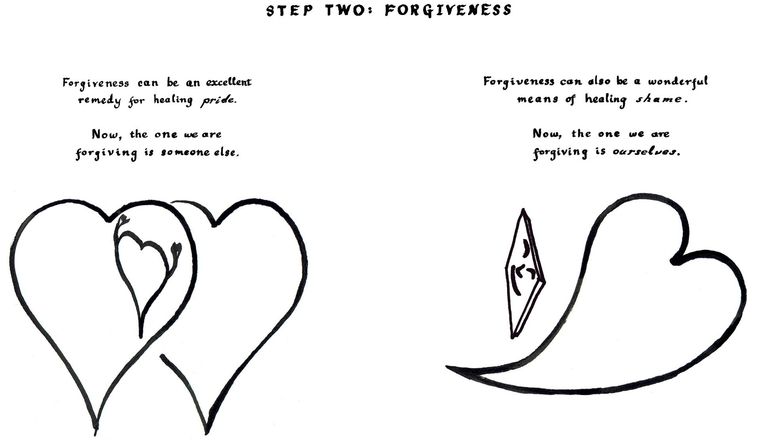Step Two: Letting Go Our Pride and Shame | Four Steps Back From Stress
Excessive pride is the product of the “stress force”
compulsive desire; likewise any self-portrait lit up bright as a neon sign, like we’re one giant legend in our mind. By pumping us full of pride, compulsive desire
can blind us to the stress that messes with our insides. A pride that’s quietly spiralling out of sight goes by one or two telltale signs: 1) we style ourselves as high and mighty;
2) we’re overeager to put others down and frame them as blameworthy; and, 3) we struggle to forgive others or apologise - even when that certainly would be wise.
Shame can be just as tricky when it makes us feel unworthy - as if we deserve to be treated appallingly. Signs of this include that: 1) we readily wear the blame and don the dunce’s cap; 2) we happily serve as others’ clown and doormat; and, 3) we struggle to give ourselves any credit or forgive ourselves.
It takes real presence of mind to see our true worth: not to be trivialised by tick boxes marked “reject” or “superstar”; and undeserving of the farce of being a Sisyphus heading nowhere fast. Where we’re going, we’re all assured of stepping aboard the getaway car and making it through the front door. We just need to know stress as a jailer and fraud, and abandon its obstacle course as a lost cause.
Pride and shame serve as stress’s strongman enforcers. Whether it’s pride or shame that treats us most awfully, both of these are best seen for what they are: cunning deceivers. To side with pride or shame - and give their double-dealing stories our credence - only stores up long-term grief for us. Both of these steep us in duplicity; with one rule for the shamed and ridiculed (whether they be us or some other poor amigo), and another rule entirely for those fitted, apparently, with halos gleaming.
To have pride tamed, we need to: 1) cultivate humility in our everyday dealings; 2) stop our accusing;
3) see the good in others; and, 4) be actively forgiving. It also means we need to come back down from the high horse of self-righteousness, and grow the honesty and courage to admit
our own part as a participant in stress’s world of harms.
To counter shame, on the other hand, we need to forgive ourselves... and tap into that presence inside of us that serves as an inner parent who loves us and never deserts us.
Either way, we need to relax the pecking of our inner swan, and practise seeing others and us as one (not least in terms of the respect-worthiness that every human has in common). Then, pride and shame - those twin engines of stress’s perpetuation - will be taken out of the equation.

